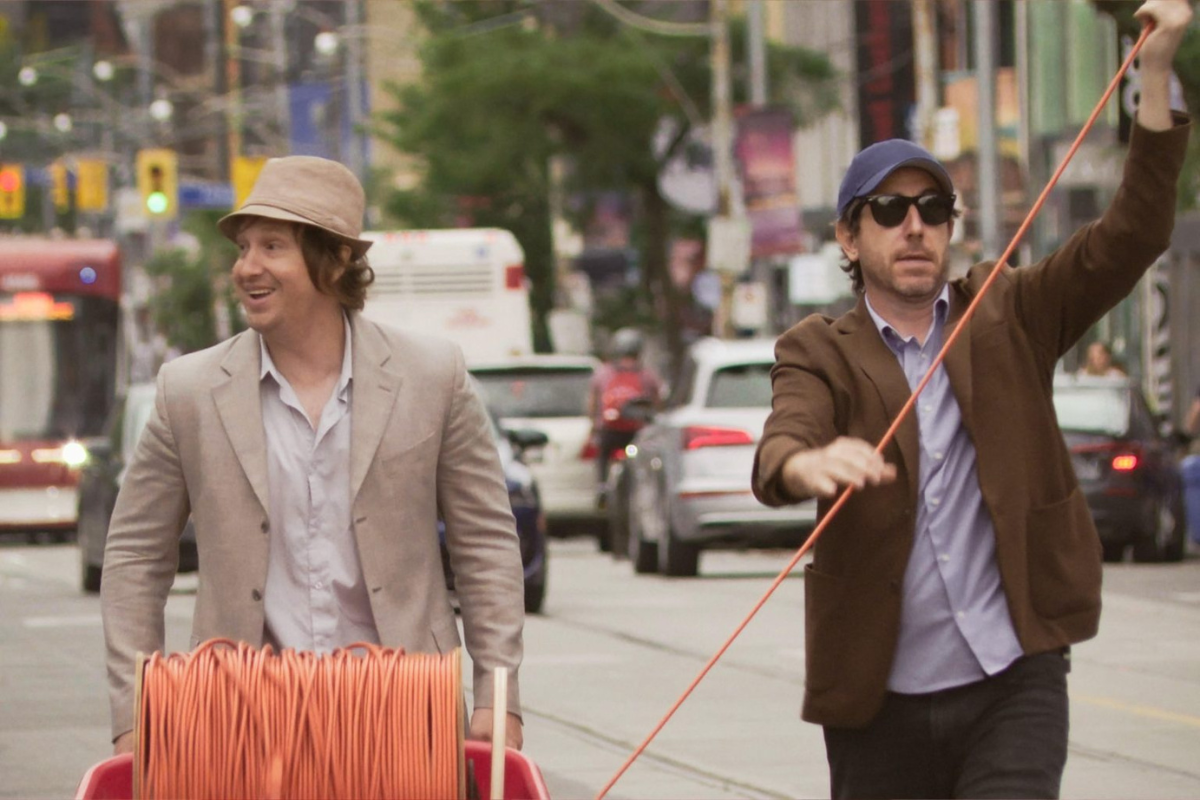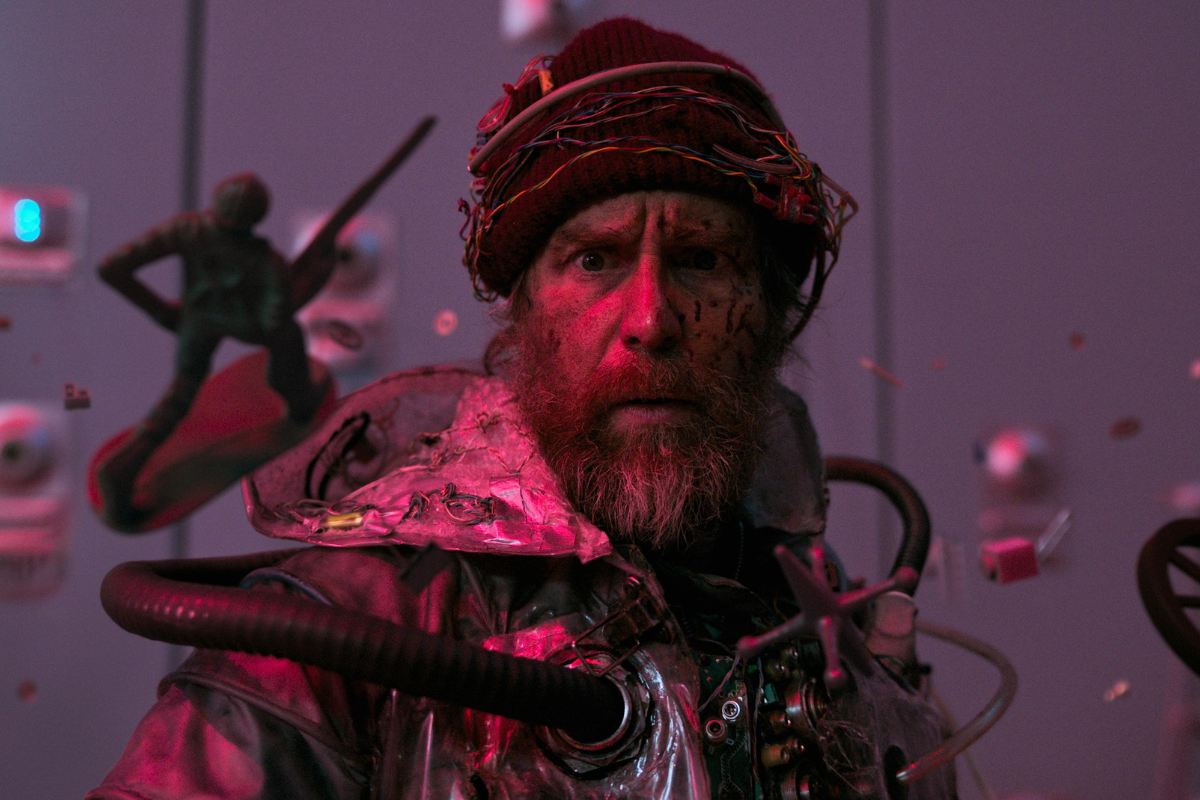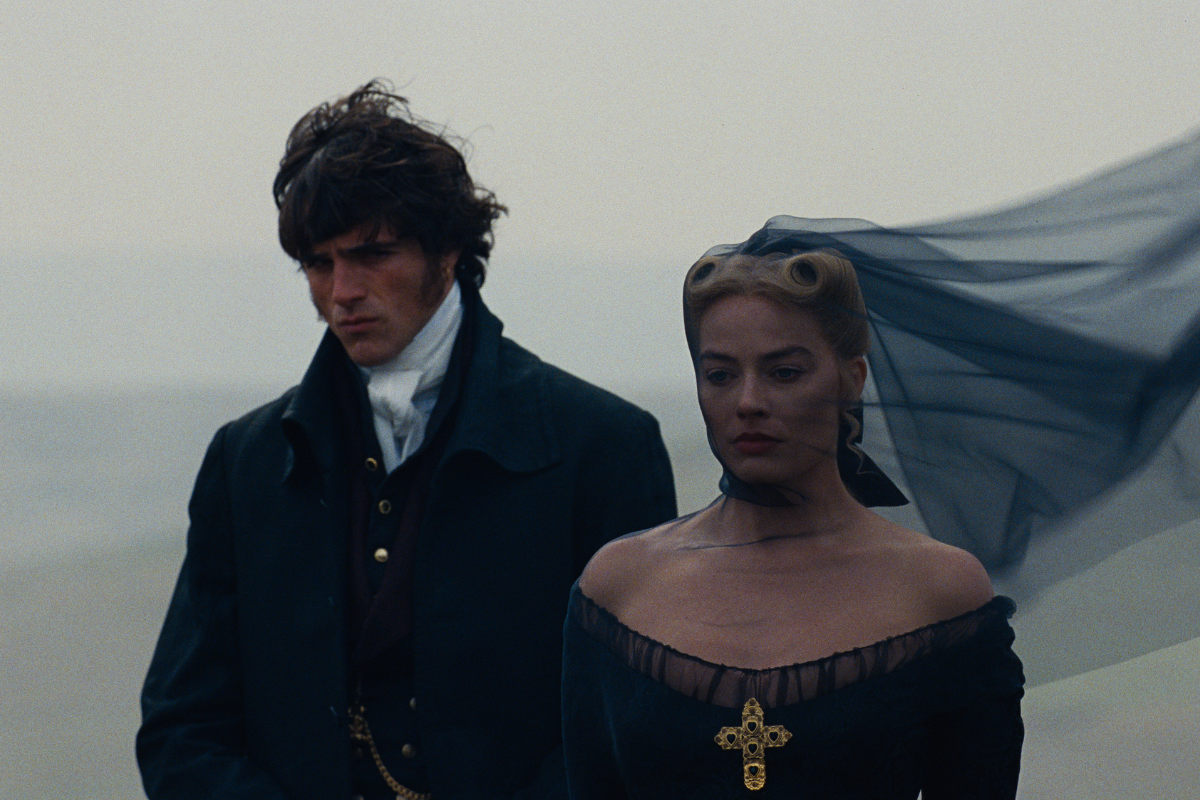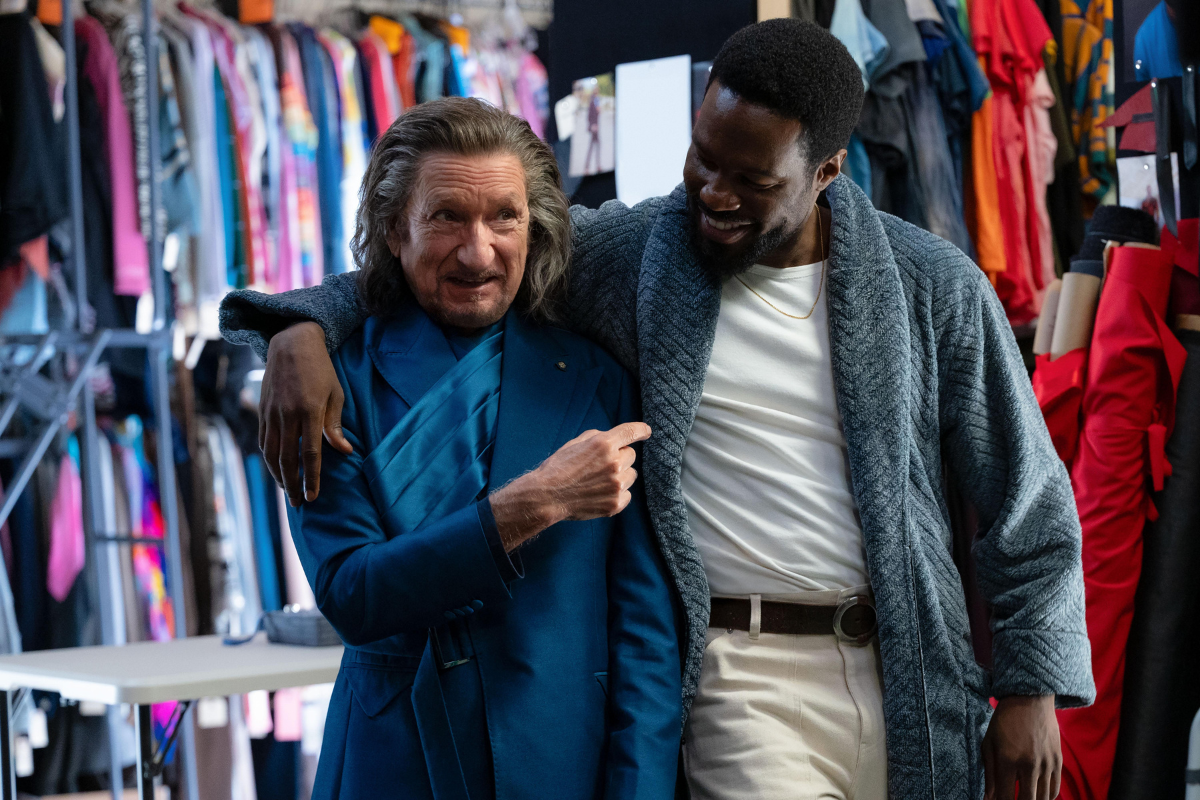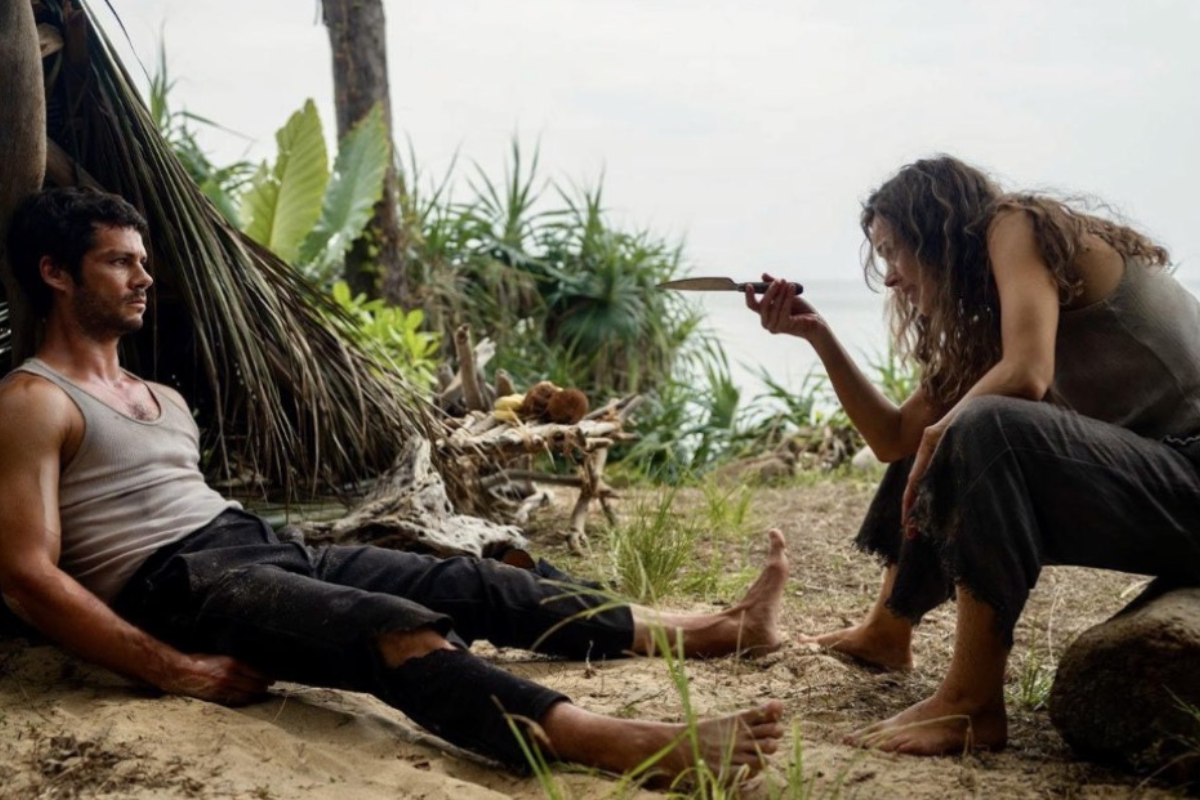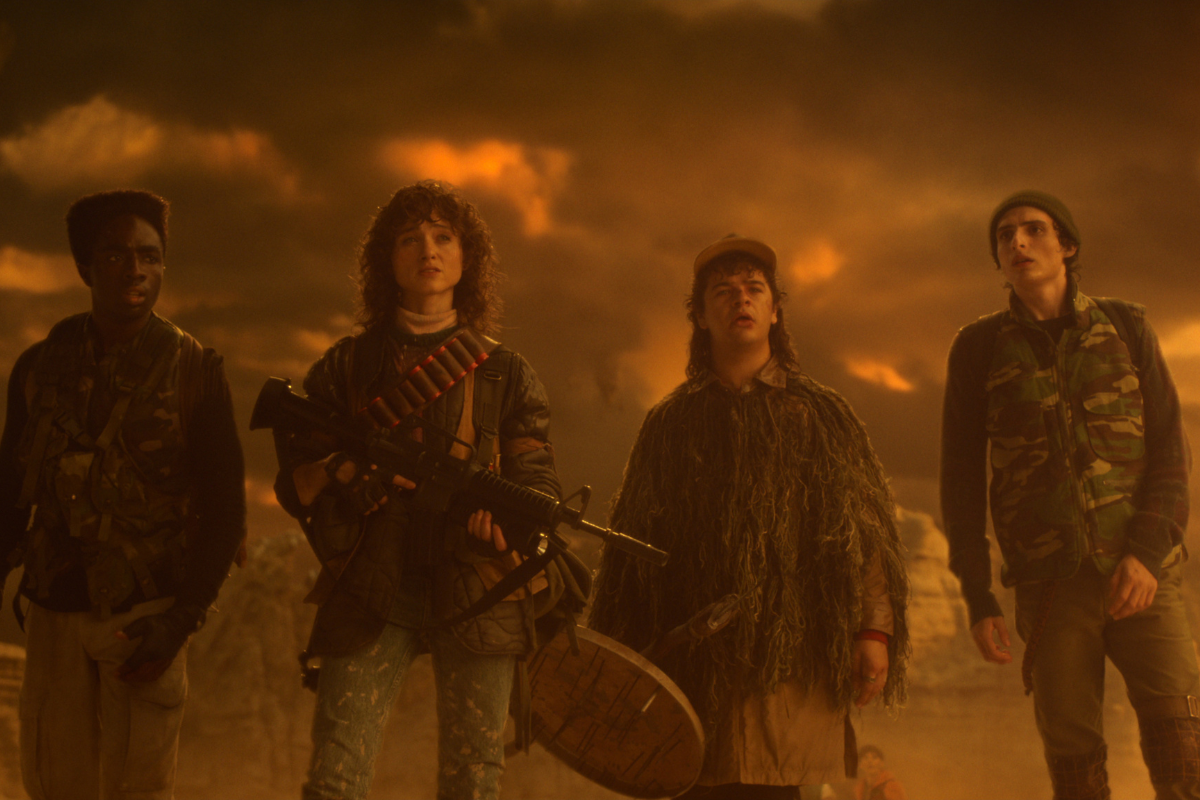‘If I Had Legs I’d Kick You’ Review
A Panic Attack Wrapped Inside a Prayer for Every Mother on Earth
There are years when cinema finds its obsessions, the collective fault line that every filmmaker seems compelled to dig into. And then there is 2025, a year that has turned motherhood into its own seismic event. What an unbelievable year this has been for stories about mothers. I am honestly in awe of the sheer variety that has emerged inside this very specific thematic space, if it can even be called a genre. The performances, the writing, the directorial voices, the emotional and psychological territories explored by these films have been remarkable. So many of the most resonant works of the year have been about the agony and ecstasy of raising a child.
Mary Bronstein steps boldly into this ongoing conversation with If I Had Legs I’d Kick You, a film that feels like a scream in a crowded room, blisteringly intimate and genuinely terrifying. The movie crystallizes the latent terror of keeping a child alive in a world that constantly threatens to pull you under. And it does so through a performance from Rose Byrne that is so intensely lived in that you begin to feel your own cortisol levels spiking in real time.
Parenthood has been fundamental to storytelling since the silent era. The poster for Charlie Chaplin’s The Kid promised six reels of joy. But it is hard to think of another stretch in film history where the subject has been so omnipresent. Paul Thomas Anderson reflected on parenthood in One Battle After Another. Eva Victor examined the choice to bring life into a collapsing world with Sorry, Baby. Mary Bronstein now turns her attention to the primal fear of keeping a fragile life alive. Across the board, from Hamnet to Sirat to Weapons to 28 Years Later to Die My Love, filmmakers are reckoning with the possibility of failing the ones we love most.
In that landscape, If I Had Legs I’d Kick You emerges as one of the most harrowing and emotionally truthful films in the canon of contemporary motherhood stories. It is a full-frontal assault on the senses. It is a two-hour panic attack turned into cinema. And it is an astonishing showcase for what Rose Byrne can do when a role pushes her to the brink.
Byrne plays Linda, a Montauk psychotherapist whose daughter has fallen ill with a mysterious condition. The illness is vague and unsettling enough to feel like a metaphor and specific enough to send any parent spiraling. Her husband is physically absent and emotionally unreachable. A patient of hers is disappearing before her eyes. Her therapist, played with brilliant deadpan menace by Conan O’Brien, grows increasingly hostile. And then the ceiling above her bed collapses and opens into a gaping hole that looks like a void waiting to swallow her whole.
The leak is the starting point. The hole becomes the metaphor. The metaphor becomes the emotional geography of the movie. Perspective collapses. Linda starts to lose her sense of proportion, her ability to tell the difference between inconvenience and catastrophe. Everything that should be terrifying becomes absurdly funny. Everything that should be funny becomes profoundly frightening. Life becomes something slippery and strange that she can no longer hold in her hands.
Bronstein films Linda in such tight close ups that the world around her feels like a disembodied echo of her own dread. Her daughter’s face remains unseen for almost the entire film, an intentional choice that centers the mother’s perspective to the point of claustrophobia. The daughter becomes less a child than an extension of Linda’s panic, a manifestation of the fear that love can slip away through no fault of your own.
It would be easy for this choice to feel gimmicky, but here it feels organic and deeply revealing. The absence of the girl’s face forces us to sit inside Linda’s mind. We feel her exhaustion, her vigilance, her silent labor. The movie places the full weight of motherhood on her shoulders and asks us to carry it with her. The exhaustion is physical, emotional, spiritual. The film does not depict motherhood as sacrifice. It depicts it as cosmic horror disguised as inevitability.
If parenting had an official motto, it would probably be, "It is not supposed to be like this. Your home is not supposed to collapse. Your child is not supposed to be inexplicably ill. You are not supposed to feel responsible for everything and capable of nothing. Your partner is not supposed to disappear into the distance." But here we are. And in this film, Linda is stranded in that impossible space. She is drowning in expectations that no one could meet. She is cracking under pressure that no one acknowledges. She is holding on by threads that fray more with every passing moment.
It is this realism that makes the film feel more Aronofsky than Safdie. There is an emotional truth beneath the chaos. It is not about someone making self-destructive choices. It is about someone whose choices are slowly being taken away. It is about a world that refuses to give mothers any room to breathe.
The sound design in this film deserves its own paragraph. It is unbelievable. It is the true standout. The edits, the frantic rhythms, the surreal burrow of ordinary noises turning monstrous, all combine to lock us completely inside Linda’s psyche. I have rarely felt a movie inhabit its character’s anxiety with such precision.
Byrne’s performance is nothing short of astonishing. She is raw, magnetic, beautifully unguarded, and so unbelievably believable as a woman whose nerves have turned to frayed electrical wire. I truly do not understand how she is not already the clear front runner for every major acting award. It is the kind of performance that redefines a career.
The film will exhaust you. It will unsettle you. It will make you laugh at moments when you feel guilty for laughing. It will break your heart. But it does all this with purpose. It is empathetic rather than punishing. Intimate rather than cruel. Brilliant rather than exploitative.
Motherhood is shown here in its full intensity. Harrowing. Raw. Unbearably human. A labor of love that feels heroic in its quiet endurance. If superheroes walk among us, this film argues convincingly that they are mothers.
Mary Bronstein has created a work of cosmic intimacy, a waking nightmare that doubles as a hymn for every woman who has ever held her world together through sheer force of will. It is not an easy watch. But it is a vital one. It will spark discussion. It will unsettle the audience into reflection. And it will stay with you.
Hold close the woman who gives you strength. If that woman is you, hold even closer.
If I Had Legs I'd Kick You is now available OnDemand.


